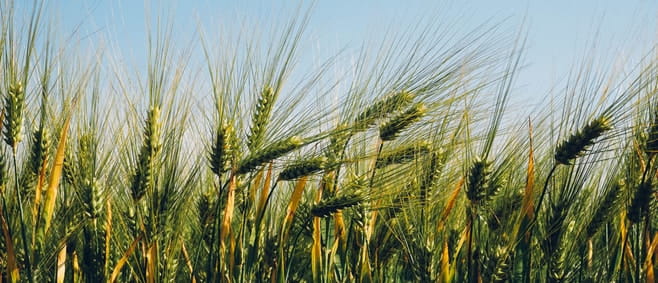Horticulture
Plants are essential to life, and understanding how to cultivate and manage them is key to building a sustainable future. When you pursue a bachelor’s degree in horticulture online from Oregon State University, you’ll study contemporary, real-world issues faced by professional horticulturists — blending science and innovation to gain the practical skills to address challenges in plant production, landscape management and ecological restoration.
Whether your passion lies in sustainable farming, urban landscaping, permaculture, greenhouse production or plant research, you’ll graduate equipped to make an impact in diverse fields thanks to hands-on labs, field-based work, diagnostics and student-driven projects. Sharpen your problem-solving and critical-thinking skills as you develop wide-ranging expertise as you prepare to lead in creating greener, more resilient environments.
Skills you’ll gain in OSU’s online horticulture degree program
As a student in Oregon State’s online horticulture degree program, you’ll gain the in-demand skills you need to stand out in the job market and level up your career. You’ll learn from expert Oregon State faculty who have real-world experience in the field.
- Plant nutrition
- Sustainable landscapes
- Urban forestry
- Permaculture
- Turf grass maintenance
- Plant breeding
- Medicinal plants
Program details
Explore plant pathology, landscape construction, pest and weed management, soils, ecology, agricultural business, policy and more as a horticulture major online. You'll also participate in applied, experiential learning, and Oregon State faculty members will share their knowledge and research of the latest technologies and trends in horticulture.
The online horticulture program is offered by Oregon State’s College of Agricultural Sciences.
Degree requirements
A minimum of 180 quarter credits — at least 60 of which must be upper-division credits — are required to graduate with your degree in horticulture, including:
- OSU’s Core Education
- Major requirements: Horticulture
- Option requirement

Additional program features
Options
When you pursue your horticulture degree online, you’ll work with your academic advisor to choose from several options that allow you to focus your studies in an area of particular interest to you.
Internship or research project
As part of your horticulture studies, you will complete a 360-hour internship or a research project in a horticulture-related position. This requirement only applies to students enrolled in the general horticulture option.
Your internship will provide important hands-on field experience and enable you to successfully apply the knowledge learned in your classes. If you are currently working in the horticultural industry, you may be able to use your employment to meet the internship requirement.
Completing a research project is recommended if you intend to continue to graduate school or work in a research setting.
Transfer credits
Some degree requirements may be transferred from other institutions. Please note that a minimum of 45 credits of the last 75 credits in this degree program must be completed at Oregon State (online or on campus) to meet the academic residency requirement.
Previously earned credits must be reviewed upon admittance to OSU for appropriate articulation. Additional information about transferring credits is available through OSU’s Transfer Credit Central.
Pursue an honors degree online
As an undergraduate degree-seeking student, you can apply to earn an honors degree online in your academic major. Earning this prestigious degree gives you the opportunity to collaborate with faculty on research, complete a comprehensive thesis experience and engage in co-curricular activities.
Explore certificates and microcredentials
You can gain highly specialized skills that are in demand by employers — and do it with less of a time and financial commitment — when you earn a certificate or microcredential online with Oregon State. Choose from a large collection of short-form offerings that can help you upskill quickly.
Horticulture careers
The knowledge you acquire in Oregon State’s online horticulture degree program will help you fill in-demand jobs in the global marketplace. As a leader in this area, you’ll enter the workforce ready to provide insights in economic sectors that need horticulture experts.
Job market outlook
Use the interactive tool on this page to discover employment trends, top occupations and salary details for professionals who have skills related to horticulture. Please be aware that completing a program related to the job market information shown here does not guarantee employment or a specific salary.
Request
information
To ensure that you receive emails from us, please add "ecampus@oregonstate.edu" and these domains to your safe senders list: “@oregonstate.edu,” “@discover.oregonstate.edu” and “@email.oregonstate.edu.”
† All mobile information you share will remain confidential and will never be given to external sources. Any costs associated with receiving a text message are the responsibility of the individual receiving the message. Opting in to this mobile text messaging service from Ecampus is free of charge, however, message and data rates may apply from your wireless carrier.
Contact
Our enrollment services team can help answer questions about online learning at Oregon State Ecampus and how to get started.
8 a.m-4 p.m. PT Monday-Friday
Contact Ecampus or book an appointment
To ensure that you receive emails from us, please add "ecampus@oregonstate.edu" and these domains to your safe senders list: “@oregonstate.edu,” “@discover.oregonstate.edu” and “@email.oregonstate.edu.”





